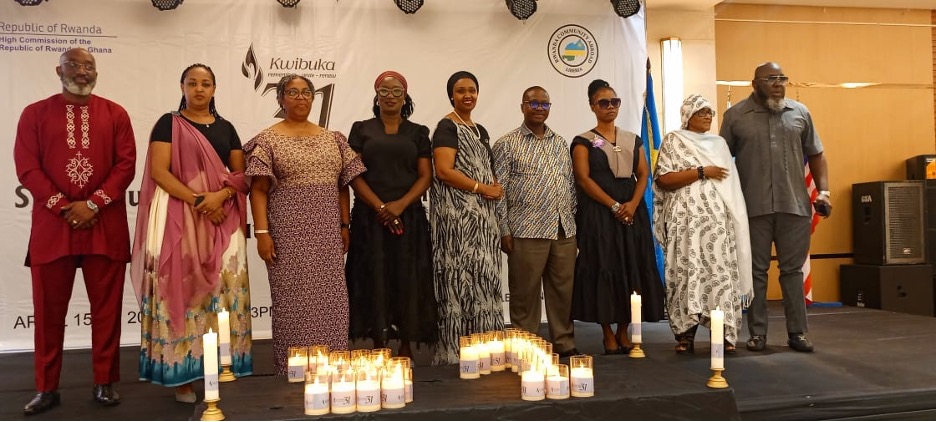MONROVIA — The Executive Director of the War and Economic Crimes Court for Liberia (WECC-L), Cllr. Jallah Barbu, has described Liberia as a “divided and completely disjointed country,” warning that the nation must learn from Rwanda’s painful but remarkable recovery from genocide.
Barbu’s remarks came Tuesday during a reflective symposium marking the 1994 Genocide Against the Tutsi in Rwanda. The event, held at the Ellen Johnson Sirleaf Ministerial Complex in Monrovia, brought together Rwandans living in Liberia, Liberian government officials, members of the diplomatic corps, civil society, students, and international partners under the theme: “Remember, Unite, Renew.”
The annual commemoration served as both a moment of remembrance and a rallying call to confront hate, division, and impunity — forces that Barbu said continue to undermine Liberia’s fragile peace.
Hate Speech: A Dangerous Pathway to Violence
Barbu warned that hate speech remains a dangerous precursor to violence, war, and national instability.
“Hate speech is tearing this country apart,” he said during a panel discussion. “Liberia is broken, fragmented — a completely disjointed country. Greed, tribalism, resentment — these are driving us further apart.”
He urged the Legislature to move beyond symbolic resolutions and enact meaningful laws that support the establishment and operations of the War and Economic Crimes Court.

Barbu called for greater coordination between the Executive and Legislative branches, especially to fully implement Executive Order 131 — which provides initial government backing for the court’s work.
“Violence and corruption are two sides of the same coin,” Barbu said. “Violence deprives people of their rights; corruption — an international crime against humanity — sustains impunity and injustice.”
He stressed that transitional justice is not a political luxury but a national emergency for Liberia’s peace and reconciliation efforts.
Remembering Rwanda: Lessons for Liberia
Barbu pointed to Rwanda’s post-genocide transformation as proof that countries torn apart by violence can rebuild — but only with strong political will, justice, and national healing.
“We cannot just remember the victims,” he said. “We must also remember that violence is never a solution. Liberia must rise above its painful past. Many of those who led violence here now sit in positions of power — above the law, immune to justice. That cannot stand if we want real peace.”
Rwanda, UN Call for Vigilance
Rwanda’s Ambassador to Liberia, Rosemary Mbabazi, also addressed the gathering, cautioning that genocide is never accidental but carefully planned and executed.
“This must never happen again,” Mbabazi said. “Every human life matters — whether from the richest nations or the poorest.”
Representing the United Nations, Resident Coordinator Christine Umutoni read part of UN Secretary-General António Guterres’ message for the International Day of Reflection on the 1994 genocide:
“We must stem the tide of hate speech and stop division and discontent from mutating into violence,” Guterres said. “On this day of remembrance, let us commit to vigilance, action, and unity to build a world of justice and dignity for all.”
A Sobering Reminder for Liberia
As Rwanda and the world reflect on one of humanity’s darkest chapters, the commemoration in Monrovia became a pointed reminder for Liberia: peace is fragile, and justice is non-negotiable.
For Barbu, the message is clear — Liberia cannot afford to repeat its violent past.
“To reconcile, we must rise above hate. We must choose justice over division,” he said.









Discussion about this post